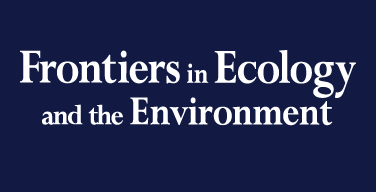
For Sustainable Forests in Europe, Study Natural Disturbance
Research led by University of Vermont scientists shows that forest management in Europe is out of alignment with natural patterns.

Research led by University of Vermont scientists shows that forest management in Europe is out of alignment with natural patterns.

Researchers at the University of Wisconsin–Madison have developed high-resolution maps that can help conservation managers focus their efforts where they are most likely to help birds.

Two University of Washington professors have been honored by the Ecological Society of America for their knowledge and contributions to the field of ecology.

Ohio Wesleyan University professor Laurel J. Anderson is the 2022 winner of the Ecological Society of America’s Eugene P. Odum Award for Excellence in Ecology Education.

Stan Wullschleger, associate laboratory director for biological and environmental systems science at the Department of Energy’s Oak Ridge National Laboratory, is the recipient of ESA’s 2022 Commitment to Human Diversity in Ecology Award.

Congratulations to alumnus Jianguo “Jack” Liu, PhD ’92, who has received the 2022 Eminent Ecologist award from the Ecological Society of America.

Analysis of data from 140 countries suggests many rich countries could use less energy per capita without compromising health, happiness or prosperity. Countries struggling with energy poverty may be able to maximize well-being with less energy than previously thought.

A UC Santa Barbara forest scientist has been selected as an early career fellow of the Ecological Society of America for her work elucidating how sylvan ecosystems respond to climate change.

(April 19, 2022) – The Ecological Society of America is pleased to announce the winners of its 2022 awards, which recognize outstanding contributions to ecology in new discoveries, teaching, sustainability, diversity and lifelong commitment to the profession.

A new article in the Bulletin serves as a how-to guide for students to become professional ecological field technicians.

Findings recently published in Ecosphere show that areas in Maine with more recent and more intense timber removal activities were associated with population declines of martens and fishers.

UC Riverside ecologists and their UC collaborators applied a new theory for predicting biodiversity to the high mountain streams of California’s Sierra Nevada.

A new paper from the Wuhan Botanical Garden of the Chinese Academy of Sciences explores the mechanisms that shape the organization and diversity of herbivore communities, providing a new perspective on the improvement of biological control efficiency.

Landscapes with diverse fire histories – or pyrodiverse landscapes – have higher diversity of pollinators, as a recent study by USDA Forest Service scientist Michael Ulyshen shows.

A recent study evaluates the social and ecological drivers of the voting patterns of the over 3 million Coloradans who voted for or against wolf restoration via Proposition 114.

New research recently published in Ecological Applications uses acoustic telemetry and machine learning to shed light on the complex ecological relationships between sharks and game fish.

Spotted hyenas adjust to a decreased presence of migratory prey in their territories induced by climate change, according to a paper recently published in Ecosphere.

(April 12, 2022) – ESA is pleased to announce its 2022 Fellows. The Society’s fellowship program recognizes the many ways in which its members contribute to ecological research and discovery, communication, education and pedagogy, and management and policy.

In a new review paper, scientists synthesize the many contributions of Indigenous knowledge and its importance as a distinct but complementary way of knowing to Western science.

In a newly published study, the researchers suggest that the best pest management outcomes may occur when growers encourage biological control — in the form of pests’ natural enemies — by planting cover crops and avoiding broad-spectrum insecticides as much as possible.